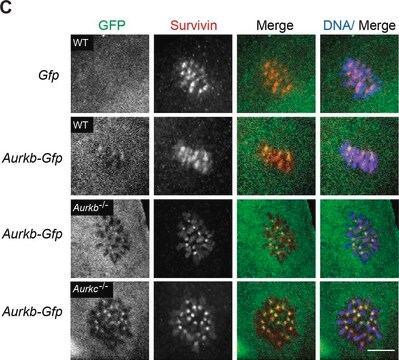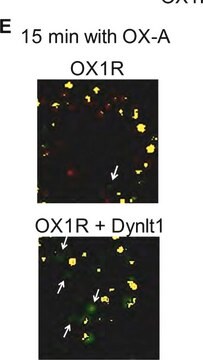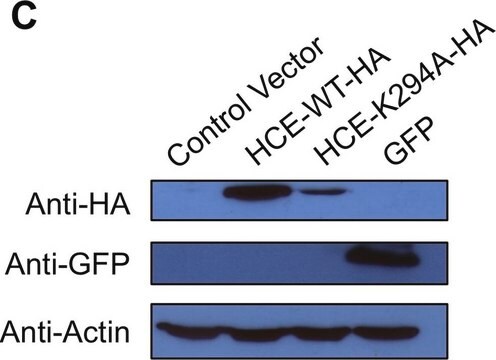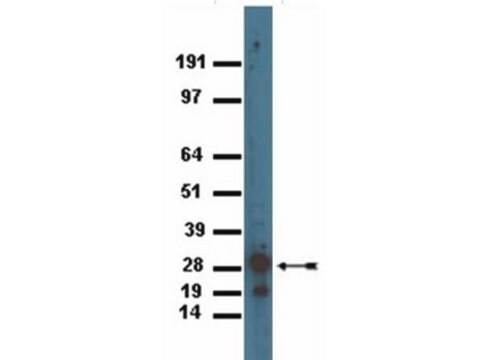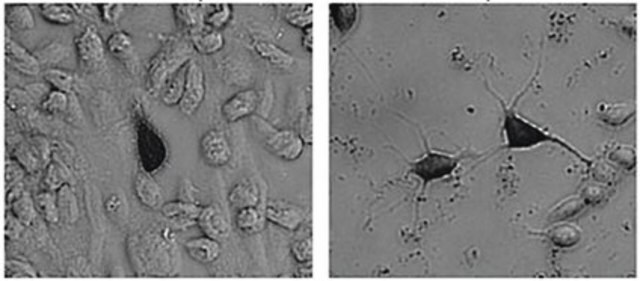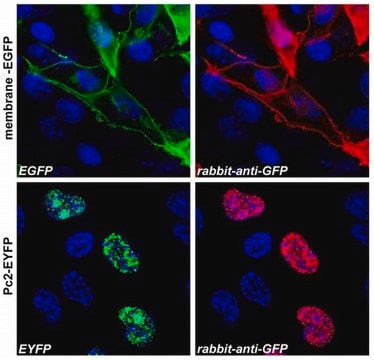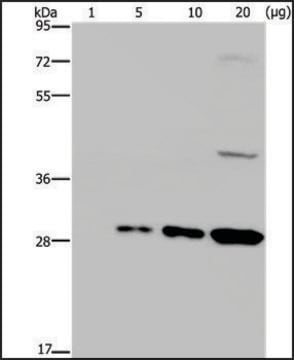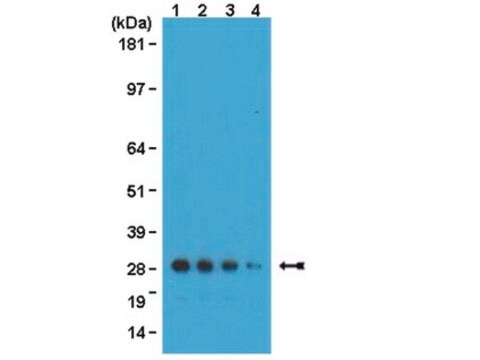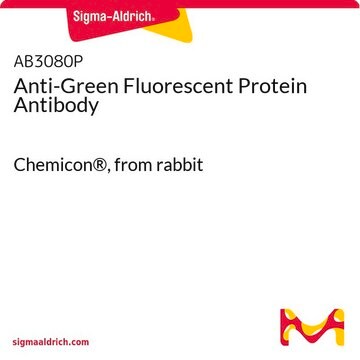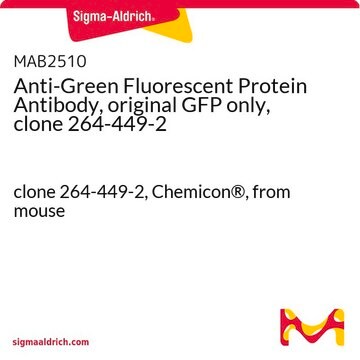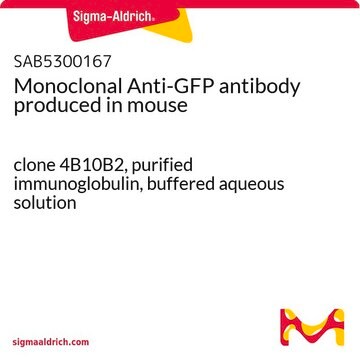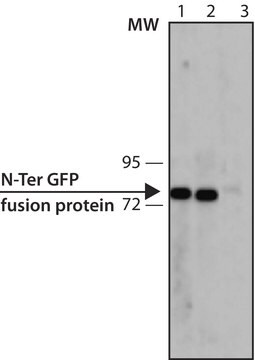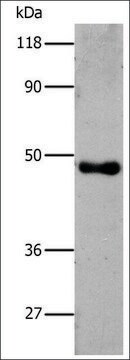06-896
Anti-GFP (Green Fluorescent Protein) Antibody
Upstate®, from chicken
Synonym(s):
Green fluorescent protein
About This Item
Recommended Products
General description
Specificity
Immunogen
Application
This antibody was reported to show positive immunostaining in cells transfected with an expression vector encoding Green Fluorescent Protein.
Epitope Tags & General Use
Epitope Tags
Quality
Western Blot Analysis:
0.5-2 μg/mL of this lot detected Green Fluorescent Protein from 50 μg of rat brain lysate containing 25 ng of purified Green Fluorescent Protein (Catalog # 14-392). A previous lot of this antibody also detected a GFP-fusion protein from a transfected E. coli cell lysate.
Target description
Physical form
Storage and Stability
Handling Recommendations: Upon receipt, and prior to removing the cap, centrifuge the vial and gently mix the solution. Aliquot into microcentrifuge tubes and store at -20°C. Avoid repeated freeze/thaw cycles, which may damage IgG and affect product performance. Note: Variability in freezer temperatures below -20°C may cause glycerolcontaining solutions to become frozen during storage.
Analysis Note
Rat brain lysate, cells expressing GFP protein.
Other Notes
Legal Information
Disclaimer
Not finding the right product?
Try our Product Selector Tool.
recommended
Storage Class
10 - Combustible liquids
wgk_germany
WGK 1
Certificates of Analysis (COA)
Search for Certificates of Analysis (COA) by entering the products Lot/Batch Number. Lot and Batch Numbers can be found on a product’s label following the words ‘Lot’ or ‘Batch’.
Already Own This Product?
Find documentation for the products that you have recently purchased in the Document Library.
Customers Also Viewed
Our team of scientists has experience in all areas of research including Life Science, Material Science, Chemical Synthesis, Chromatography, Analytical and many others.
Contact Technical Service